Q&A: Mission Plastiki—Catching Wind, Storing Rain: David de Rothschild’s Quest for Pacific Plastic
The eco-adventurer tells Circle of Blue how sailing the Plastiki across the Pacific, a 60-foot catamaran comprised of 12,500 plastic bottles reveals the ominous side of plastic generation, use and disposal.
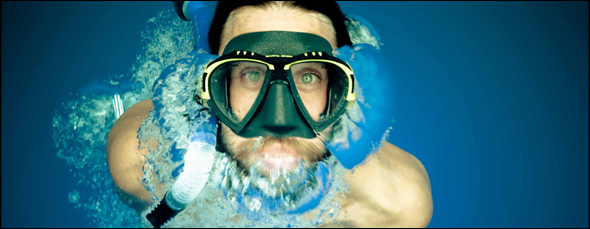
David de Rothschild is an adventure environmentalist who has journeyed to the North and South Poles on foot–and holds the record for the fastest trip across the Greenland ice cap. In 2005 he launched Adventure Ecology. It’s an organization of daring explorers that go to the Earth’s far-off corners to tell stories of environmental devastation, inspiration and solutions.
David de Rothschild’s latest expedition is across the Pacific Ocean aboard a specially designed catamaran made of 12,500 plastic bottles. It’s also a hybrid of advanced technology—using entirely recyclable plastic and special resins to create a seaworthy, storm-proof vessel.
We’ve been following Plastiki’s journey since the crew left San Francisco in May to travel 11,000 miles through the Great Pacific Garbage Patch—a Texas-sized whirlpool of plastic litter.
Circle of Blue spoke by satellite phone with David on day 118 of the trip. He talked about the challenges of conserving and collecting fresh water on the unique vessel and how Plastiki, a tiny boat on a large blue ocean, is reflective of the Earth’s own fragile ecology.
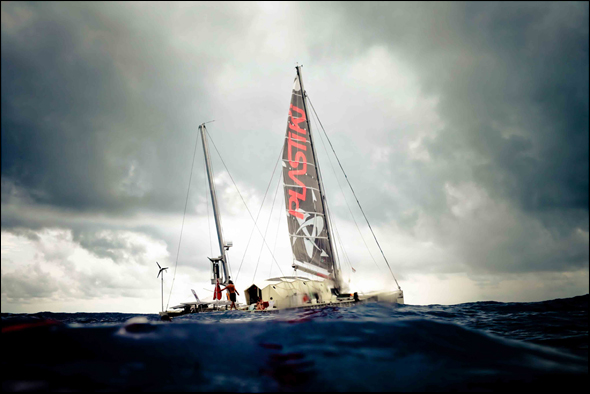
David de Rothschild: It’s been an extraordinarily humbling trip and a trip that has broadened my horizons maximally. I think that of the crew in just understanding the challenges that we face when it comes to the issues of plastic. The boat is made entirely of the number one plastic. PET. We have 12,000 PET bottles underneath us right now keeping us afloat. The super-structure is also made of ceritex, a self-reinforcing textile which we engineered for this project—I believe you saw that when you came to the pier in San Francisco.
What we have been seeing really is what, I think, is a far more ominous part of the story of plastic generation. You can’t see a great deal because most of the plastic that is in our ocean is subsurface. It is underneath in that first layer, in that light layer of the ocean. [It’s] in molecular sizes pieces, or in pieces much smaller than people might anticipate when they read about this island of trash. What’s happening is as the plastic gets into the ocean, it breaks down into molecular size pieces. [These] pieces then work their way back into the food system. We know that plastic is oil-based, so what it does is it attracts all the toxins, which are basically escaping through our river systems and coming over land runoff.
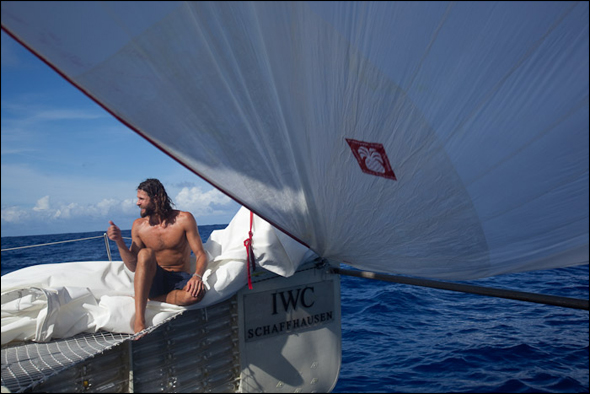
It’s really at that critical point where we are really close to systemic collapse, biological collapse.
It’s really at that critical point where we are really close to systemic collapse, biological collapse. Our fish stocks are almost at that point where, only recently I read that on this trajectory, we will be potentially, completely over-fished without a chance of regeneration by 2050. And as much as I would like to say that gives us a bit of time, I know how often these predictions about 2050 become 2030 or 2020. I’ve seen it with the Arctic sea ice, when it was 2100 back in 2006 when we had the Arctic summer or a nice free Arctic summer. The prediction is now 2013.
David de Rothschild: This is as close to being out in space as you could be in that regard in the sense that you really have the humility to see the enormity of our planet through this incredible lens and freedom of being on a boat. I guess in a way this is our spaceship here. We are here with our solar panels, our wind turbine and our food, and we have to live within our system, live within our means—on this sixty by twenty foot platform. We are on our own space station out here. That is what we’re trying to do, use this as a floating message of hope, as a floating message, or inspiration to people to realize that they can all undertake their own Plastiki to use Plastiki as a method of change. Our planet and nature are craving change.
Unless we can actually re-integrate into the web of life, our planet is going to be very short lived.
What is sort of absurd about all this is actually without nature, somehow we’ve gotten arrogant that we’ve superseded all other species, and that we’re more adaptable and more intelligent and more robust than the web of life. This is the biggest mistake that we have made and will continue to make. Unless we can actually re-integrate into the web of life, our planet is going to be very short lived.
I really wonder what it’s going to take, and I’m a blind optimist. I really hope that people will react before the collapse happens and before systems really don’t function as they should. We’re already seeing that and I just find it extraordinary that we can just sit there. In a way it’s like a game of Jenga—the game where you put all the blocks up and if you pull out the wrong block, the whole game falls down. That’s exactly what we’re doing, we’re playing a game of Jenga with our natural systems, with our water systems, with nature. And every block represents a species or systems or vital component to make the whole piece work. When we remove these blocks we don’t know what the block actually does to the whole system because it’s very systematic. Unfortunately our planet is now viewed with cause and effect symptom based thinking. We don’t look at things from a systemic perspective. We don’t look at the fully integrated approach that nature takes. So we are in a position now where we’re pulling blocks from this game of Jenga, and at some point we’re going to pull the wrong block.
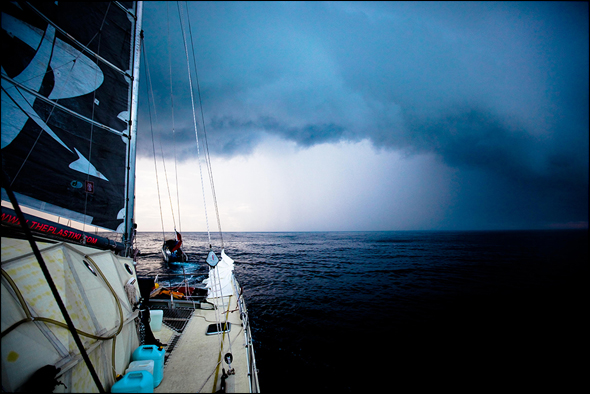
One of the things we went for was just good, old-fashioned rainwater collection. We designed the cabin to be a one great water catcher, so the cabin roof is hooked up with four outlets. Every time there’s a downpour we fill up our tanks. And it becomes a real moment of the day. You will see every crew member take their clothes off and run outside and have a freshwater shower and make the most of those precious drops. Sometimes the school lasts a minute, and you can’t wash the soap off. And sometimes we’re getting showers lasting almost day to a day-and-a-half of solid rain that fills our tanks up—it is quite an extraordinary story on the first leg. We realized our limitation with the water. We had to make a few decisions; one of them was the garden. Halfway across from Christmas Island we had to decide whether the water was going to be for us, or the water was going to be for the garden. Obviously we chose us, which meant the garden suffered. This is one of our big challenges, and the big challenges that we see all over the world. We see communities that have no access to water and it’s very hard for them to make the choices between do I feed myself and or hydrate myself, knowing that without water I will be gone in 15 days. You cannot survive without freshwater. It was quite an extraordinary story, but oddly enough on the first leg it only rained one day and along with the rain I should make clear that we also had big bladder bags where we stored our water and had an allowance each day of three liters a day per person. It really became a mind strain because we really did start to go through our water and you know the wind wasn’t in our favor and the first leg was dragging on longer than what we anticipated and when we arrived at Christmas Island we were literally at the bottom of our supplies. I think that had a big psychological effect on me and made me very aware about how incredibly lucky we are in the developed world or in any part of the world where we can just turn a tap on and not even contemplate the journey that water has taken and the process its taken to flow out of our taps so easily. The water issue on board has always been one we contended with whether it was carrying enough water, or whether during re-supplies. It’s really become a big topic of conversation and really does highlight how precious a resource it is. Without water we are really in dire straits.
You realize that nature will guide us, will drag us kicking and screaming, whether we like it or not. I think and I hope that with connectivity and the ability to share stories we are at an interesting time, even though it is a tough challenge, even thought it’s going to be a monumental shift, the shift can occur.
You realize that nature will guide us, will drag us kicking and screaming, whether we like it or not. I think and I hope that with connectivity and the ability to share stories we are at an interesting time, even though it is a tough challenge, even thought it’s going to be a monumental shift, the shift can occur. We all need to be able to recognize our position. We need to look up at the stars. We need to look at the ocean. We need to look at the woods. We need to look at all the systems around us and recognize that these are our life support systems. We can take our connectivity and our enthusiasm that I know exists. There are many groups that I read about every day that are doing extraordinary projects. We just need to allow that passion to connect.
To read more about Plastiki and to learn more about David de Rothschild’s work and other projects, be sure to visit Circle of Blue online at 99.198.125.162/~circl731.
Our theme is composed by Nadev Kahn, and Circle of Blue Radio is underwritten by Traverse Legal, PLC, internet attorneys specializing in trademark infringement litigation, copyright infringement litigation, patent litigation and patent prosecution. Join us gain for Circle of Blue Radio’s 5 in 15. I’m J. Carl Ganter.
The mission: bring attention to the vast amounts of plastic that are swirling in giant whirlpools—called gyres—in the world’s oceans. The plastics are accumulating at an alarming rate.
Circle of Blue provides relevant, reliable, and actionable on-the-ground information about the world’s resource crises.


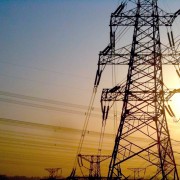
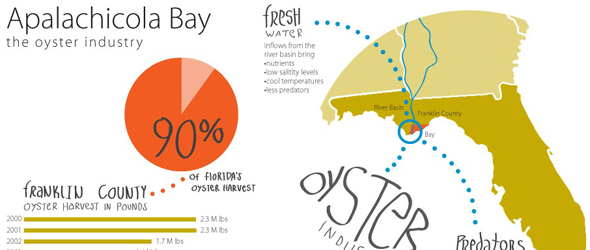
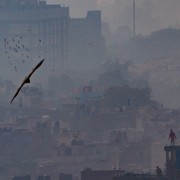
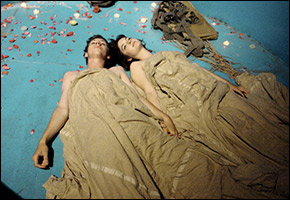
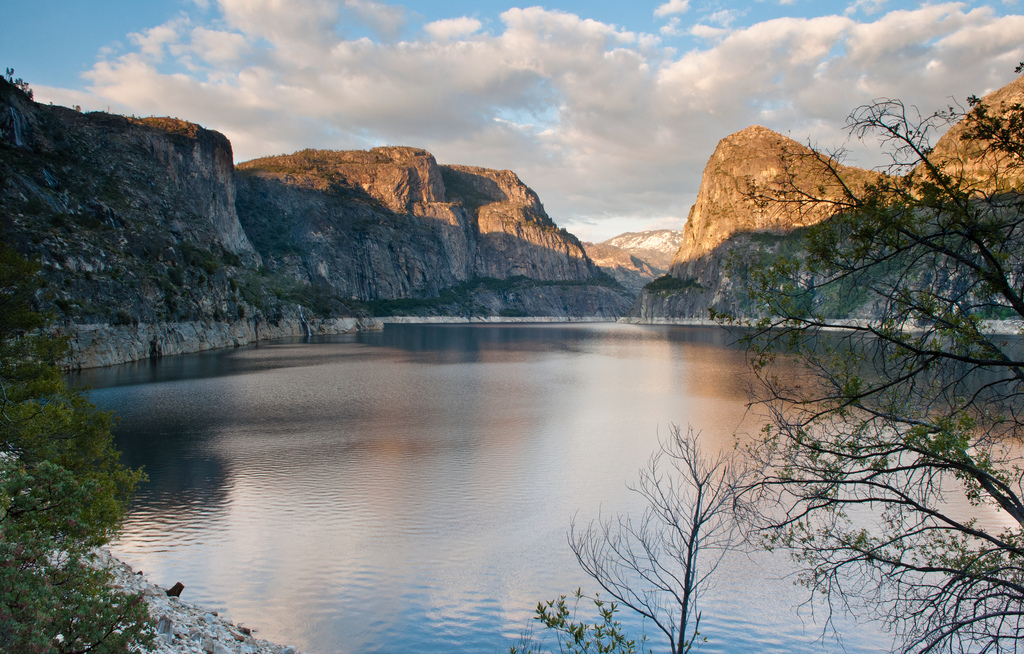


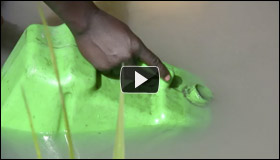
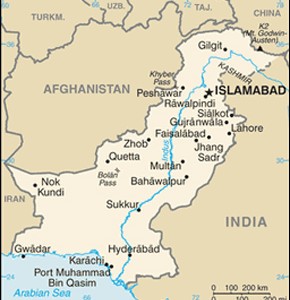
Leave a Reply
Want to join the discussion?Feel free to contribute!